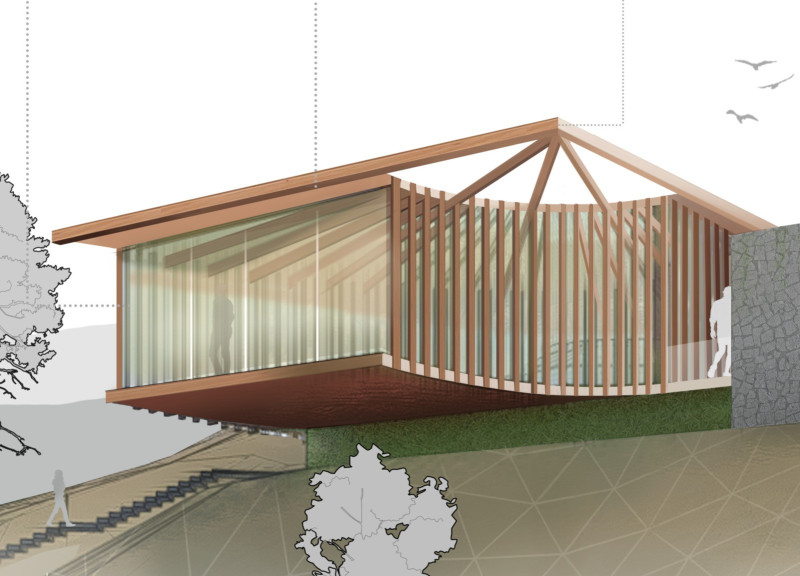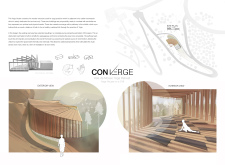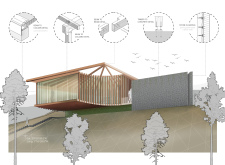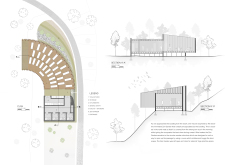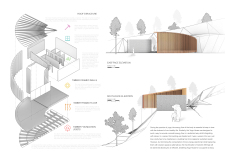5 key facts about this project
The Yoga House is an architectural endeavor that combines yoga practice with its natural surroundings. Located within a peaceful landscape, the project consists of two separate buildings: a wooden structure for yoga sessions and a rubble building that serves necessary support functions. The overall design aims to balance spiritual practice with physical wellness, creating a connection between the interior spaces and the outdoors.
Spatial Organization
The layout of the buildings is thoughtfully designed to promote ease of movement and connection. A central pathway links the yoga space with the service building, serving both practical and symbolic roles. This pathway encourages visitors to walk between the two structures, enhancing engagement with the environment and fostering a sense of unity.
Zen Garden
A Zen Garden is an important feature of the design, adding to the peaceful atmosphere. Located in a way that protects it from the harsh morning sun while maximizing views at sunset, the garden offers a space for quiet reflection. Its circular design blends with the landscape and provides opportunities for outdoor yoga practice, enriching the user experience.
Sustainable Design
Sustainability plays a key role in the approach to the architecture. The primary yoga building is constructed from locally sourced wood, which helps to limit transportation-related carbon emissions. The wood also contributes to thermal insulation, making the building more energy-efficient. The use of translucent polycarbonate between wood elements allows natural light to enter while maintaining comfort within the studio.
Natural Ventilation and Water Management
The design promotes natural ventilation, utilizing openings that align with prevailing winds to allow fresh air to circulate. Skylights in the rubble wall offer daylighting, reducing the need for artificial lighting. The elevated design incorporates systems for collecting rainwater, allowing for effective water management and ensuring that essential services are sustainably sourced.
The Yoga House features thoughtful details that encourage energy flow throughout the site, illustrated by the open shapes and inviting pathways that guide the user experience.


